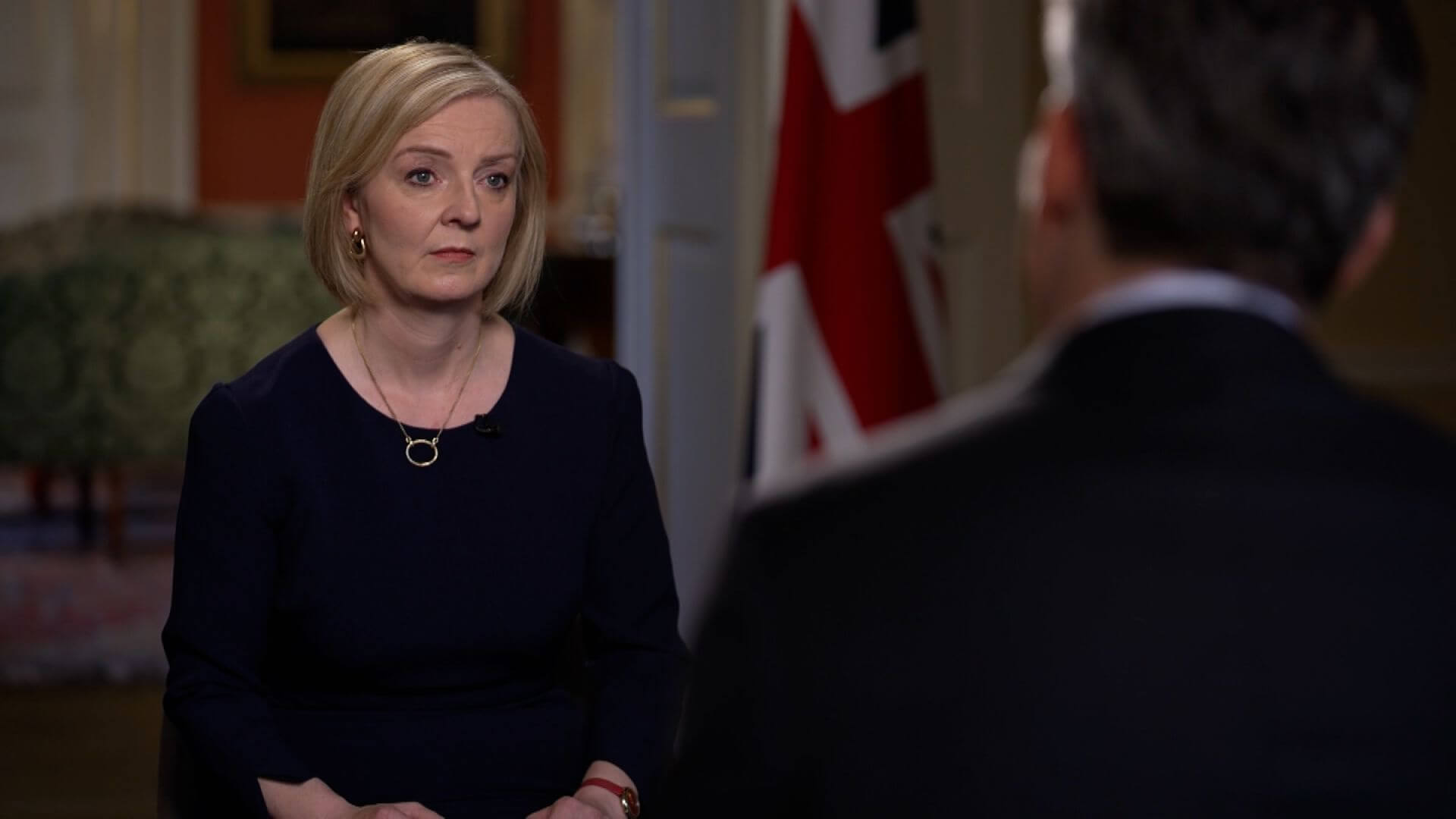United Kingdom (UK) Prime Minister (PM) Liz Truss said on Sunday that her government is keen on working with its allies to ensure that Taiwan has the means to defend itself but refused to join her United States (US) counterpart Joe Biden in promising military intervention in case of a Chinese invasion.
During an exclusive interview with CNN, journalist Jake Tapper asked Truss if the UK would be willing to match United States (US) President Joe Biden’s recent pledge to defend Taiwan militarily in the event of a possible invasion by China. Truss responded that she has “been clear” on the fact that “all of [the UK’s] allies need to make sure Taiwan is able to defend itself,” which she said is “very, very important.”
Truss stopped short of making any pledges to intervene militarily but said “the free world” must “learn the lessons from Ukraine.” She noted that the international community “didn’t do enough to counter Russian aggression early enough,” which “emboldened” Putin to “start this appalling war.” “We can’t see that situation happen in other parts of the world,” the British PM emphasised.
British Prime Minister (@10DowningStreet) @trussliz to @jaketapper on #CNNSOTU: Putin made a 'strategic mistake' invading Ukraine https://t.co/nqhAYg12dQ
— State of the Union (@CNNSotu) September 26, 2022
The British leader also said that her government is working with its Group of Seven (G7) allies to help “reduce our strategic dependency on China” and ensure that the UK is “standing by” its “democratic allies around the world.”
Truss’ support for Taiwan is not unprecedented. During her tenure as British Foreign Secretary, Truss said in April that the West’s reaction to Russia’s invasion of Ukraine should serve as a warning to China. “We have shown with Russia the kind of choices we’re prepared to make when international rules are violated. And we’ve shown that we’re prepared to prioritise security and respect for sovereignty over short-term economic gain,” she remarked. She added that China’s rise is not “inevitable.” “They will not continue to rise if they don’t play by the rules,” Truss underscored.
🇹🇼🤝🇬🇧
— Taiwan in the EU and Belgium (@TaiwanEU) September 27, 2022
We thank UK Prime Minister Liz Truss for stating her determination to work with allies to make sure that Taiwan is able to defend itself!
💪To strengthen democratic resilience and fight the threat of authoritarian expansionism!
📹@CNN Jake Tapper's interview pic.twitter.com/hUxdofMRuq
Later, in June, the former foreign secretary said that the North Atlantic Treaty Organization (NATO) must ensure that China does not invade Taiwan by promoting the “importance of peace and stability across the Taiwan Strait” and helping Taiwan “defend itself.” She also stressed that apart from including Taiwan in international organisations, NATO allies must also strengthen economic ties with Taiwan to ensure its “economic security” along with “hard security.” She noted, “We know that China is watching Ukraine closely.”
Since assuming the role of PM, the UK parliament’s lawmakers have also been in talks with Taiwan to provide Chinese-language teachers as the British government looks to phase out Chinese government-linked Confucius Institutes. A study conducted by the China Research Group in June showed that almost all of London’s spending on Chinese-language teaching from 2015 to 2024 was channelled through university-based Confucius Institutes, which amounted to at least £7 million (US$8.1 million). However, London’s new proposal would allow the funding to be redirected to alternative programs such as those from Taiwan.
Cross-party lawmakers from the #UK are in talks with #Taiwan to provide Chinese-language teachers as the British government looks to phase out Chinese government-linked #ConfuciusInstitutes. Learn more:https://t.co/o4LnYlaWsv#China #LizTruss #Truss #Beijing #CCP #CPC
— Statecraft (@statecraftdaily) September 19, 2022
Tapper’s questions about the level of British military support for Taiwan were fueled US President Biden reiterating earlier this month that US troops would defend Taiwan in the event of a Chinese invasion. In an interview with CBS’ “60 Minutes,” when asked if the US military would help defend the island against a possible Chinese invasion, Biden declared, “Yes, if in fact, there was an unprecedented attack.” When requesting clarification, correspondent Scott Pelley asked, “unlike Ukraine…US forces, US men and women would defend Taiwan in the event of a Chinese invasion?,” to which Biden replied: “Yes.”
A White House spokesperson sought to engage in damage control shortly after the president’s comments by saying that the US’ policy towards Taiwan had not changed. However, Biden made a similar emphatic response during his trip to Japan in May, when he said: “That’s the commitment we made.”
New G7 leaders’ group looks set to be more critical of China than before:
— Stuart Lau (@StuartKLau) September 26, 2022
🇺🇸Biden: US forces would defend Taiwan
🇬🇧Truss: “Determined to work with our allies to make sure Taiwan is able to defend itself”
🇮🇹Meloni: “It is sure that Taiwan will be an essential concern for Italy”
Concerns surrounding Taiwan’s security have peaked after US House Speaker Nancy Pelosi’s recent visit to Taiwan, following which China conducted unprecedented military drills and even launched ballistic missiles over the island nation.
Against this tense backdrop, the deputy director of the Central Intelligence Agency (CIA), David Cohen, has suggested that Chinese President Xi Jinping wants the People’s Liberation Army (PLA) to be prepared to invade Taiwan by 2027.

